Our firearms represent a major investment in cash, time, and commitment for most of us.
It makes sense that we spend time training and practicing and becoming the best we can be with each of our chosen tools.
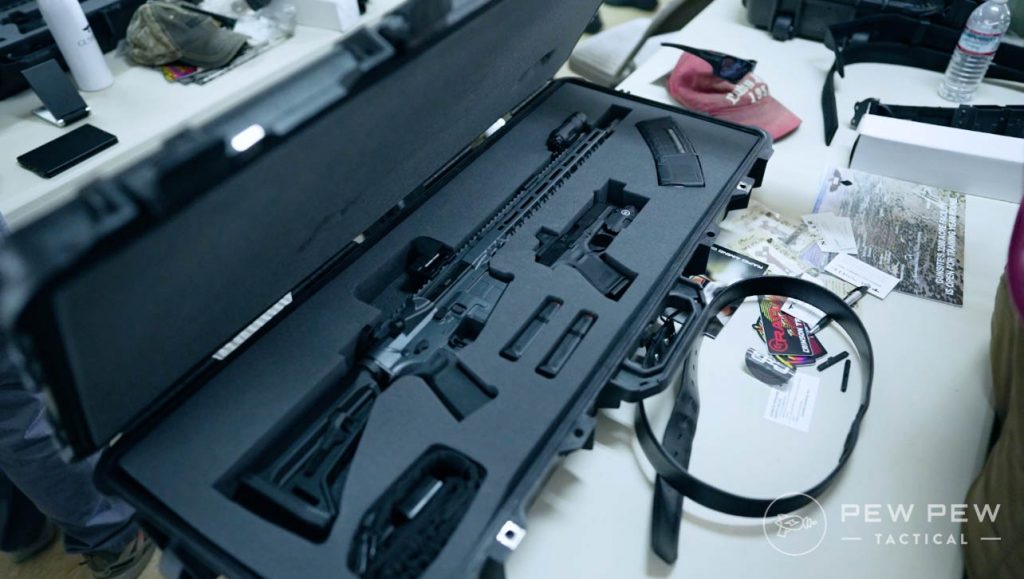
It also makes sense that we invest properly in storing our guns and ammo so they will always be ready when needed and literally last our lifetime and those of the next generations.
How do you do that? Well, by storing your guns and ammo when you aren’t using them.
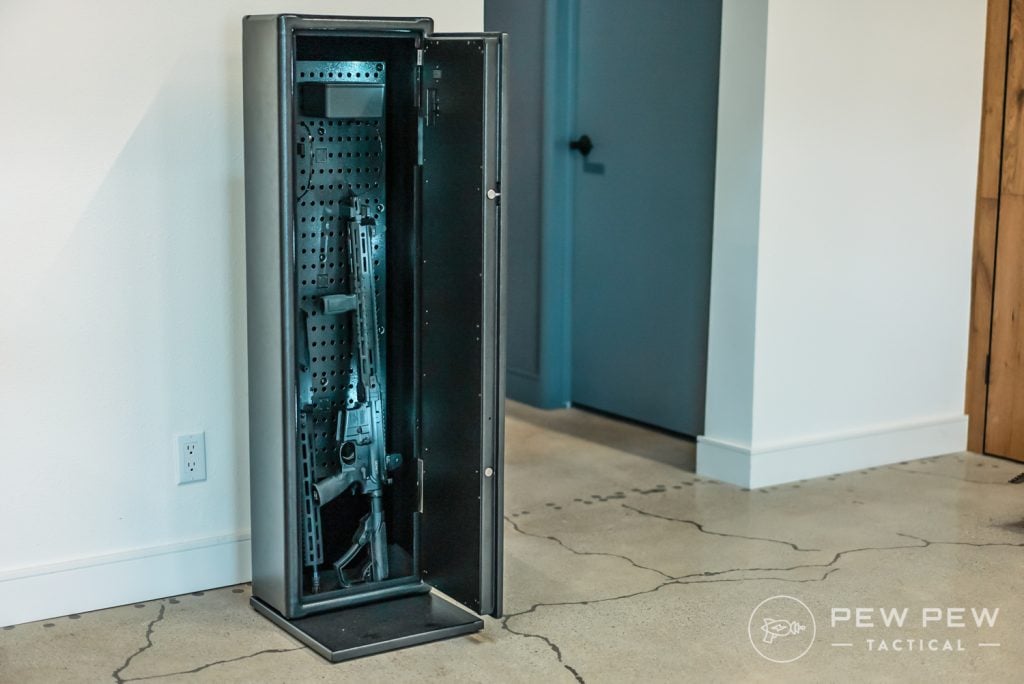
Today, we’re going to walk you through how to make sure your guns and ammo storage is up to snuff and ready to protect your investment.
So, keep reading!
Table of Contents
Loading…
Preparing To Store Your Guns
When we think about storing our guns in this day and age, I bet most think in terms of gun safes.
Safes provide ample security and in some cases protection against fire. They also provide a method of storage that allows our guns to come out of storage the same way they went in…ready to go to work regardless of the job.
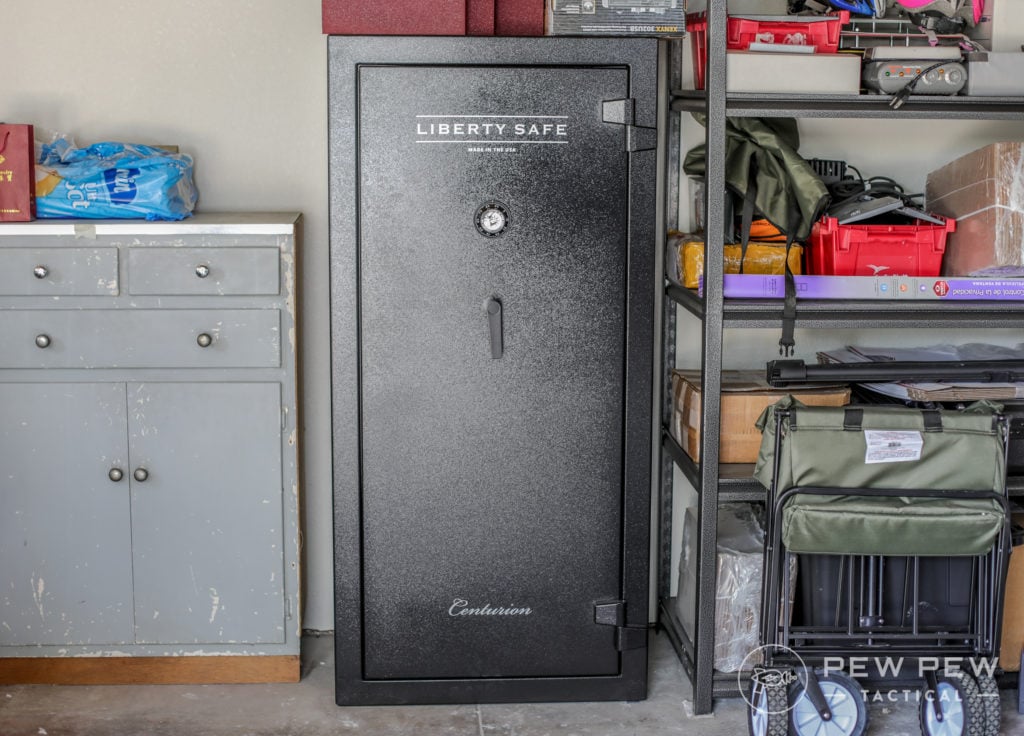
How many of us have come back from a day at the range and put our guns back in the safe, promising to clean them tomorrow or later? And then how many tomorrows pass before we actually get to proper maintenance?
The problem with the latter is that moisture and corrosion never take a day off.
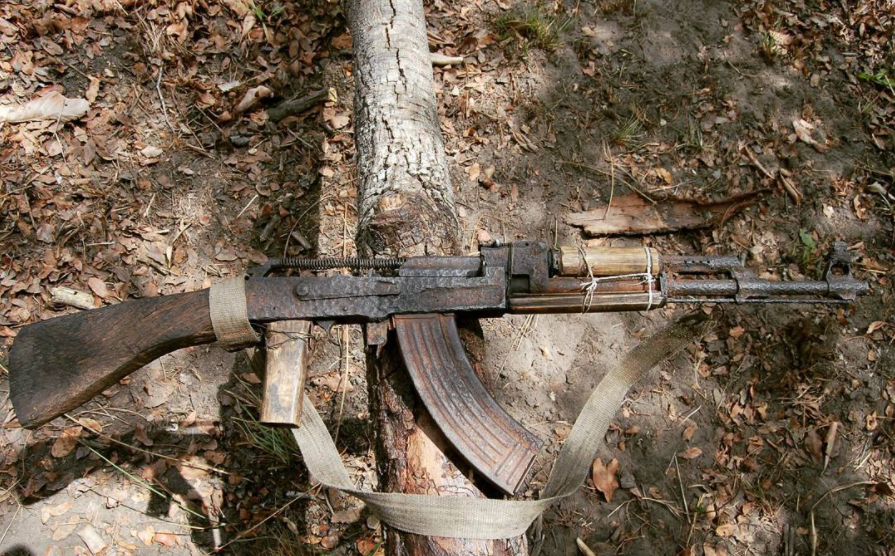
At the very least you should wipe down your guns with a quality firearm lubricant. For a lot of us, that means Hoppe’s No. 9 Gun Oil or Break Free CLP or Ballistol.
A quick swab through the bore as well is important so you have at least a bit of lubricant coating the bore.
Your sweaty, salty hands and fingerprints are an open invitation to rust, so at least take a minute to wipe down your guns.
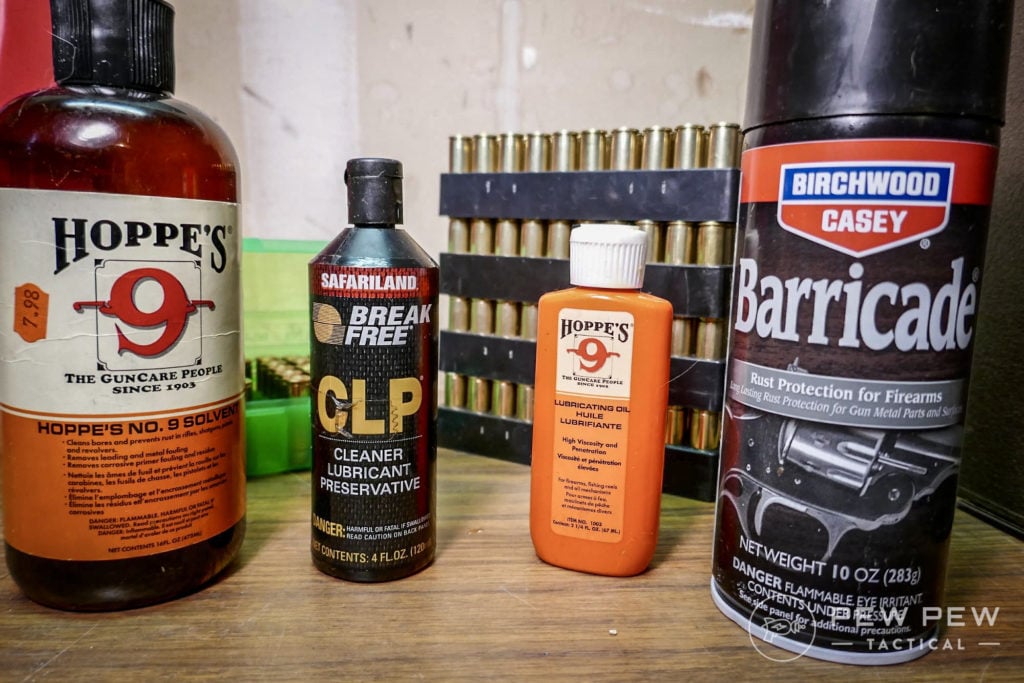
To be thorough, however, requires that we sit down at the bench and clean and lubricate our guns properly. That means cleaning the exterior with a quality cleaner and a lubricant. Then swabbing the bore and lubricating it properly.
If you’re shooting a revolver be sure to clean the cylinder and crane. Don’t forget the magazines.
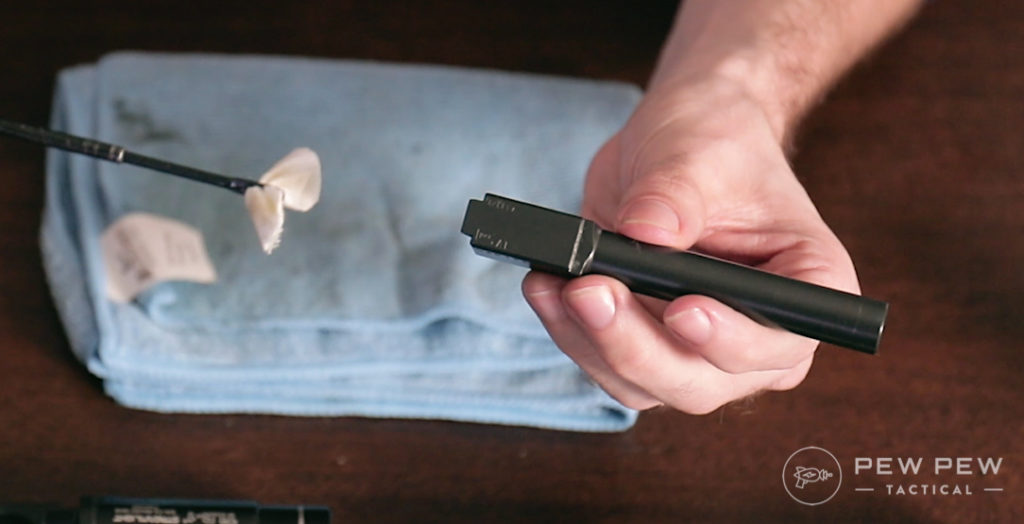
Especially if you’ve been running drills and doing fast reloads and letting them drop to the ground. Get all the dirt and gunk out before you trust your life to those magazines in your carry gun.
If you’ve been out on a wet day chasing whitetails through the snowy woods be sure you dry, clean, and lubricate your rifle. At the end of the season, you need to remove the stock and clean and lubricate the bottom of the barrel and action.
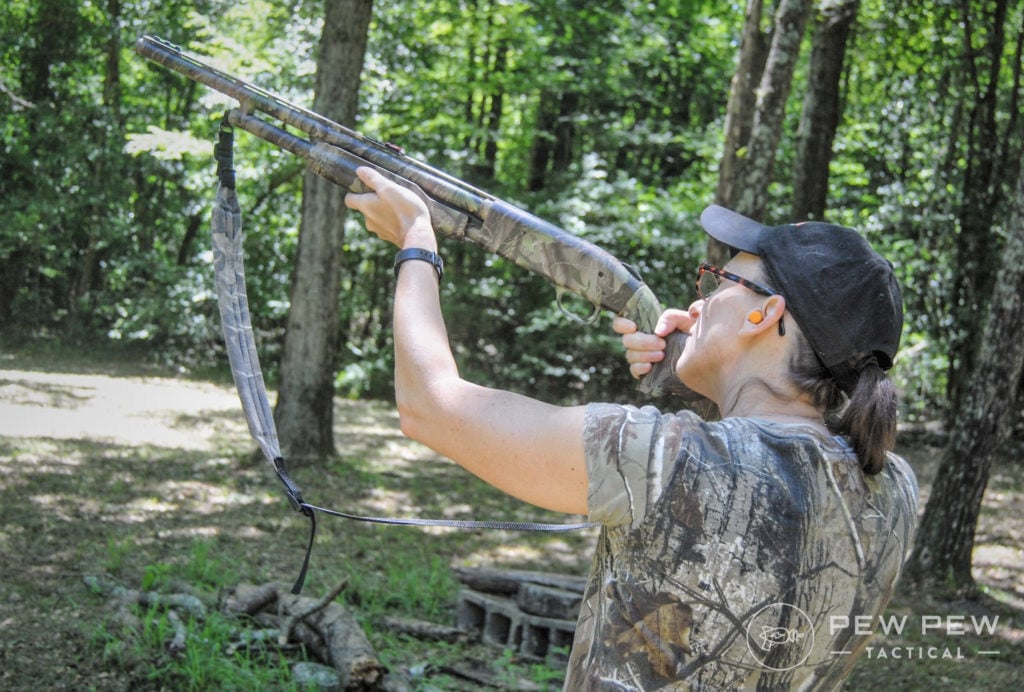
You’ll be amazed at how much rust you will find on the metal that is surrounded by a wood or composite stock.
Even your stainless guns will rust quickly if not cared for properly. Be sure to torque the action screws according to the manufacturer’s recommendations and check your zero before you head out again next fall.
If you have wood-stocked rifles or shotguns give the wood a rub down with Ballistol or a good gun stock wax.
-
25% off all OAKLEY products - OAKLEY25
Copied! Visit Merchant
How you clean your guns is not important. Cleaning your guns is what is important. There are lots of great products on the market for cleaning and lubricating. Use what works for you. But use them.
Here’s a great tutorial and test of various products by Brownells for protecting your fine firearms.
Storing the Guns
Now that your guns are cleaned and lubed it’s time to store them until our next trip to the range or field.
First, let’s look at a few things to NOT do
- Do not store your guns in gun cases or pistol rugs. The linings are actually quite absorbent and will tend to pull moisture from the air into the material and literally surround your gun with moisture.
- Do not store your guns in the original cardboard or plastic box. Again, cardboard will absorb moisture as will gun boxes with soft or formed foam cutouts. Best to keep the box elsewhere for transport to the range or for use when selling your gun at a later date.
- Do not store your guns in holsters. Whether nylon or leather or Kydex, it’s best to store your handguns in a rack in your safe. Again, we don’t want anyway for moisture to surround our guns.
To-Do
- After the guns are clean, use a rag or wear gloves to handle the gun when placing it in the safe. You don’t want oily, salty fingerprints on the gun or wood stock.
- Place handguns in a rack so each gun has a place and they are not banging against each other.
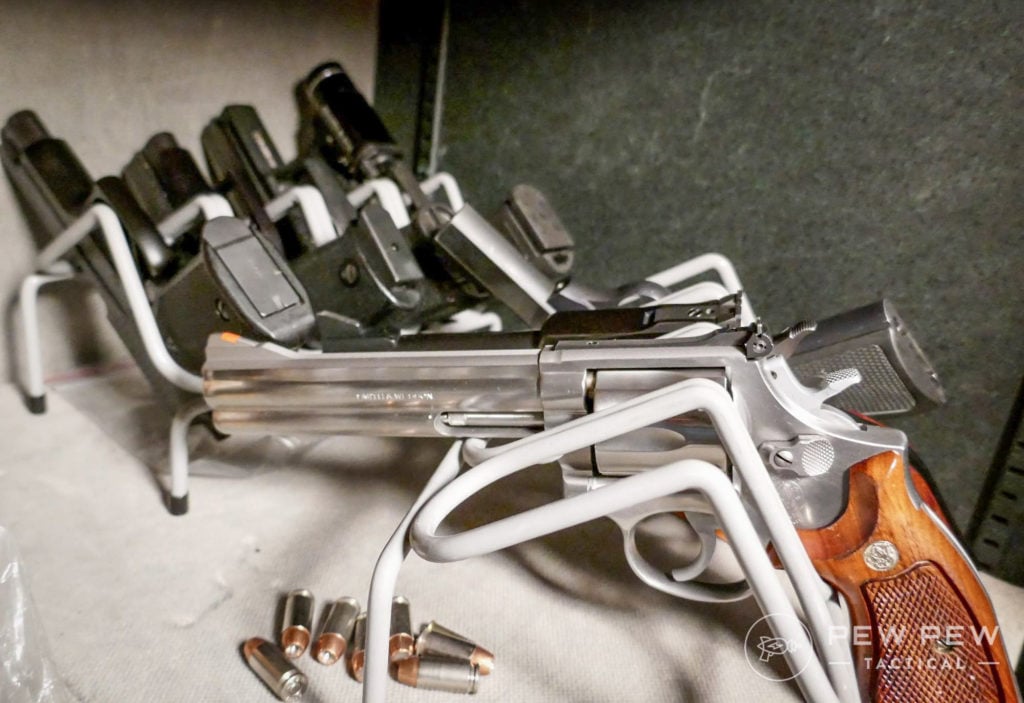
- Long guns go in the safe so they are not touching or rubbing against each other. Some folks advocate storing long guns with muzzles down to prevent any excess oils or lubricants from slowly seeping into the stocks or actions. For extremely long storage intervals this is probably a good idea. Just be sure your guns are very secure and will not fall over against other guns when stored this way.
- For those with over-crowded safes or fancy wood stocks, you may want to consider storing your guns in gun socks. I know we just said no material around the gun. But the silicone impregnated socks do not absorb moisture and will protect your guns from dings and bumps in the safe as well.
-
25% off all OAKLEY products - OAKLEY25
Copied! Visit Merchant
Don’t forget to start getting in the habit of pulling your guns out every couple of months to check them and re-lubricate as necessary.
Preparing Your Safe
Again, assuming most of us have a safe for storage, there are a few things you can do to upgrade your storage facility.
To keep the interior of the safe dry a simple solution, use silica gel beads to absorb moisture. Commercial packaging often includes a test strip that indicates when the beads have absorbed all the moisture they can hold.
The beads can then be placed in the oven and dried or recharged in two to three hours.
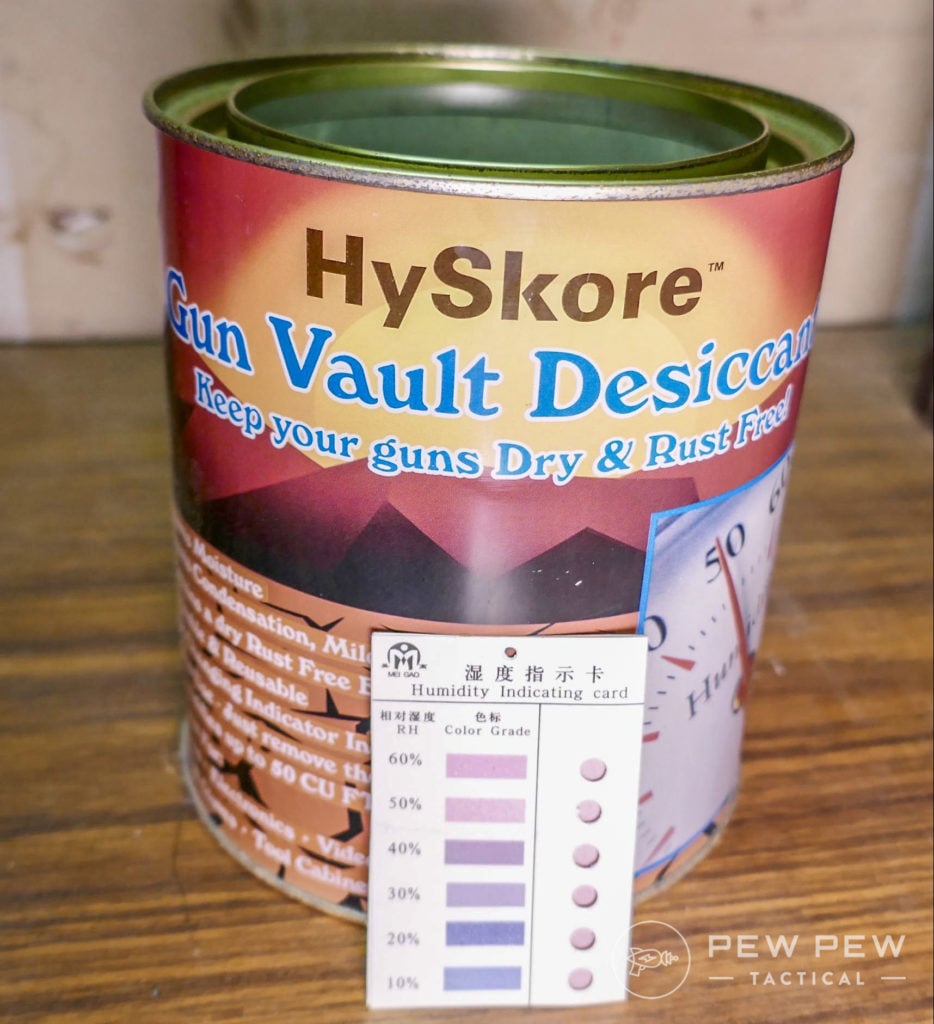
You can also find the beads in bulk at Amazon and place them in an empty quart paint can if you want a couple of containers in your safe.
To keep the safe a bit warmer and to aid in circulating the air in the safe, the Golden Rod Dehumidifier is generally the gold (no pun intended) standard.
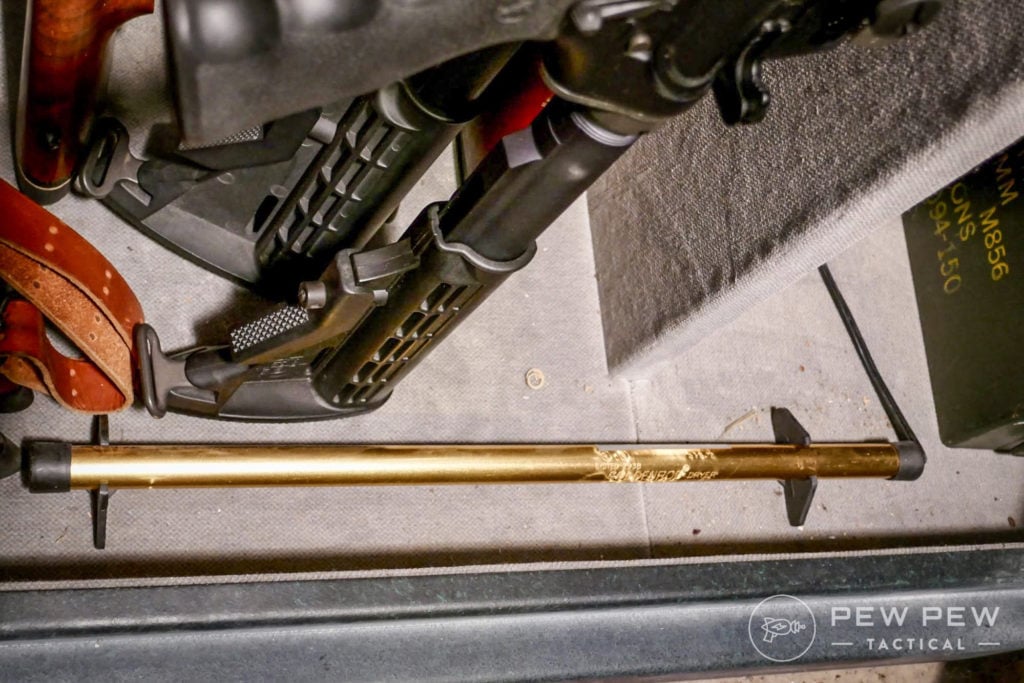
Available in a variety of sizes these work very well, especially if your safe is in an unheated shop or garage.
-
25% off all OAKLEY products - OAKLEY25
Copied! Visit Merchant
We also like rechargeable gel dehumidifiers that let you know how much moisture there is. Simply plug into an outlet to “recharge.”
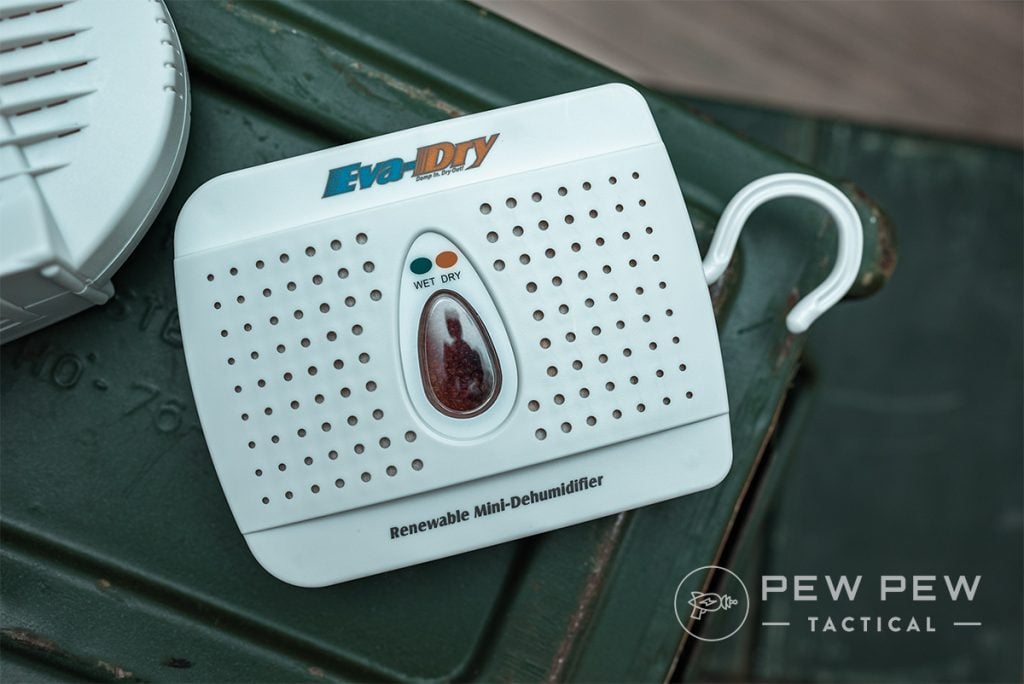
-
25% off all OAKLEY products - OAKLEY25
Copied! Visit Merchant
What to Look Out For
It’s important to check on your guns from time to time. Most shooters are constantly in their safe getting ready to go to the range, going hunting or tinkering at the workbench.
Make it a habit to pull out the guns you don’t use as much and inspect them for any rust or pitting.
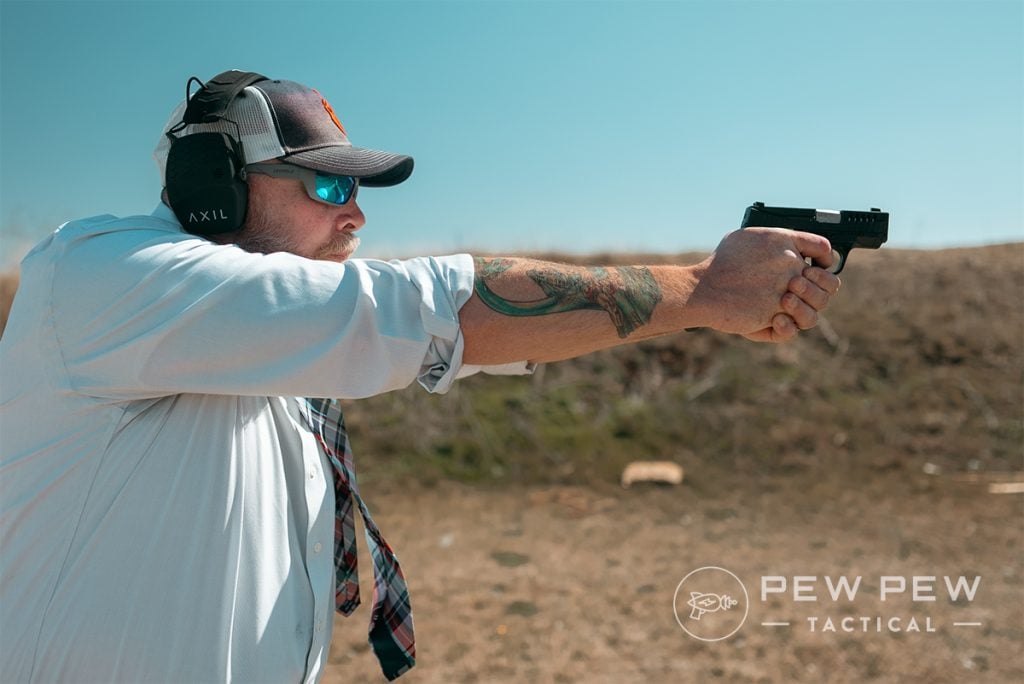
Take a look at the muzzle for any greenish-blue streaks in the barrel that indicate residual copper jacket material is corroding.
If you see any color in the bore you need to do a more thorough job of bore cleaning and get all the copper out.
Work the action a few times be sure everything is functioning. If you have used quality cleaners and lubricants you should not have anything sticking or hanging up.
If you do, take the gun down again, clean it, dry it and lubricate it again.
Storing Ammo Long-Term
I’m willing to bet most of us have a fair amount of ammo stored at home for practice, competition, hunting and well, just because.
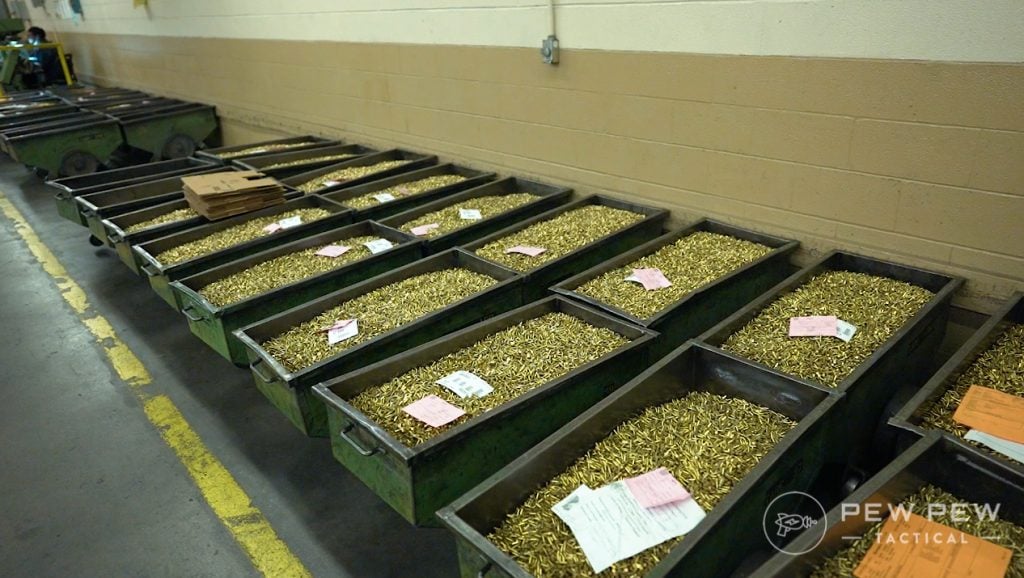
Stored properly modern ammunition should last for decades. The biggest enemy of powder and primer compound is heat.
So try to store your ammo at household temps or cooler and keep it out of the sun. It should go without saying that “keeping your powder dry” is also critical.
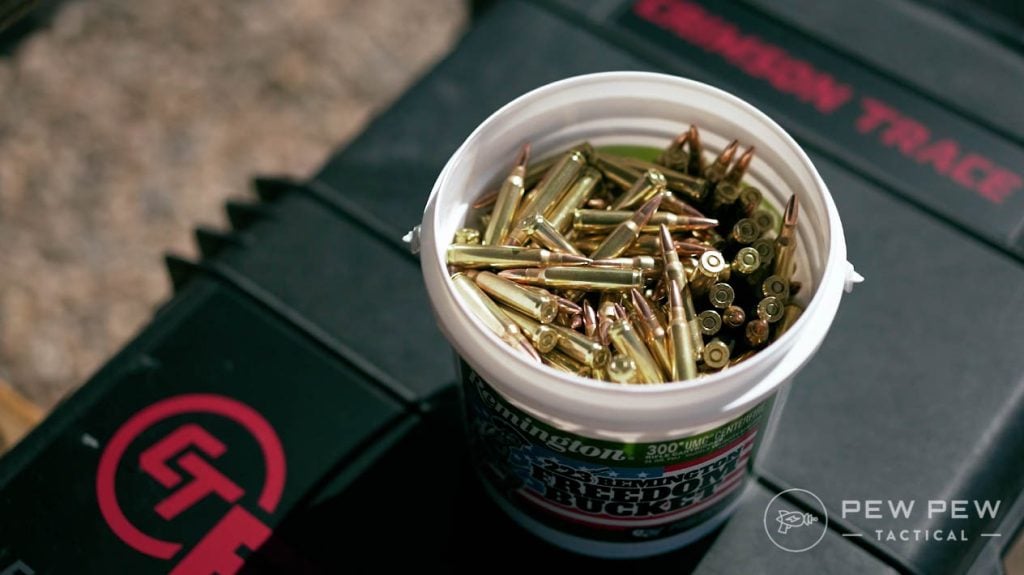
A great resource to review with regards to storing ammo and reloading components is the SAMMI (Sporting Arms and Ammunition Manufacturers’ Institute) website.
The rules covered here apply to both commercial and residential storage guidelines. Most reloading manuals will also have a section about safe storage practices.
I personally like surplus 50 caliber ammo cans.
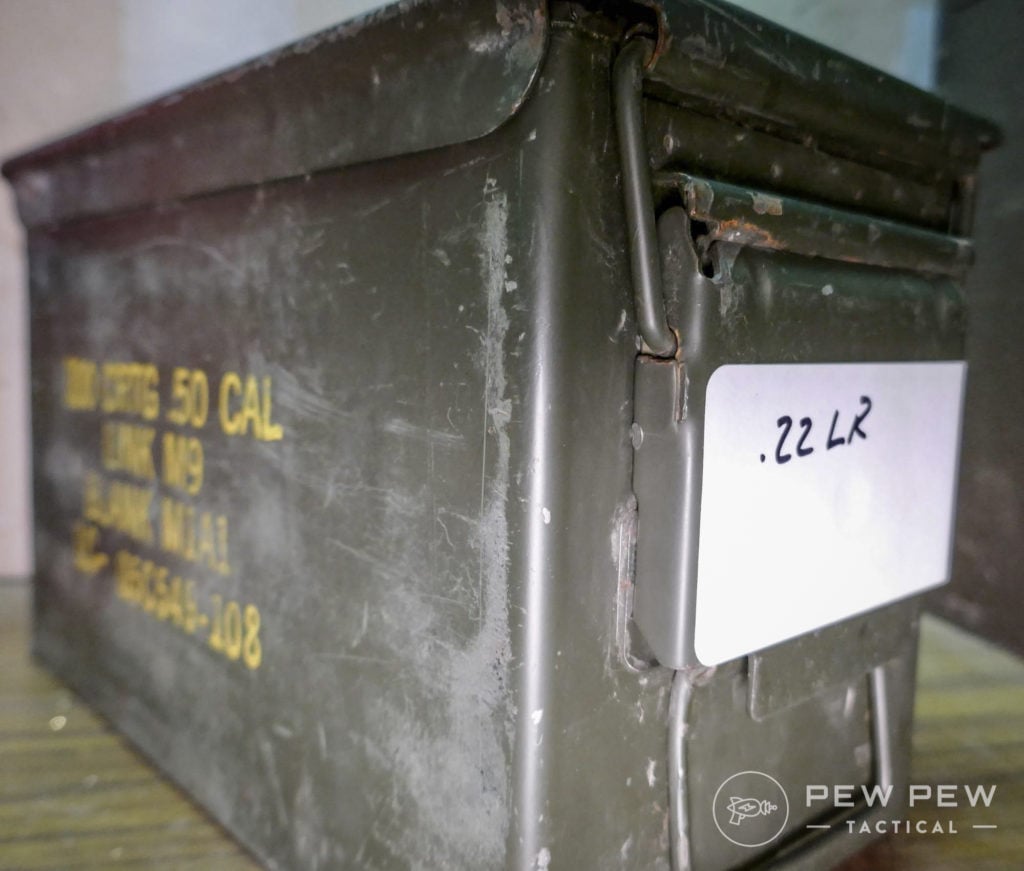
Be sure the rubber seal is intact so the can is as watertight as possible. Because I reload, the majority of my loaded ammo is stored in 20 or 50-round MTM ammo boxes.
I store my ammo in the cans by caliber. That way it is easy to keep organized and in boxes that are not so heavy no one can move them.
Prices accurate at time of writing
Prices accurate at time of writing
-
25% off all OAKLEY products - OAKLEY25
Copied! Visit Merchant
There is some concern regarding fire and sealed containers. If a can of ammo was exposed to fire and the ammo began to cook-off, the sealed can could contain enough pressure from the expanding gasses to eventually explode and cause some serious damage.

For long-term ammo storage, you can throw in a small desiccant pack to help control moisture.
If you are a reloader and have powder and primers stored, the same thing holds true. Avoid heat and moisture.
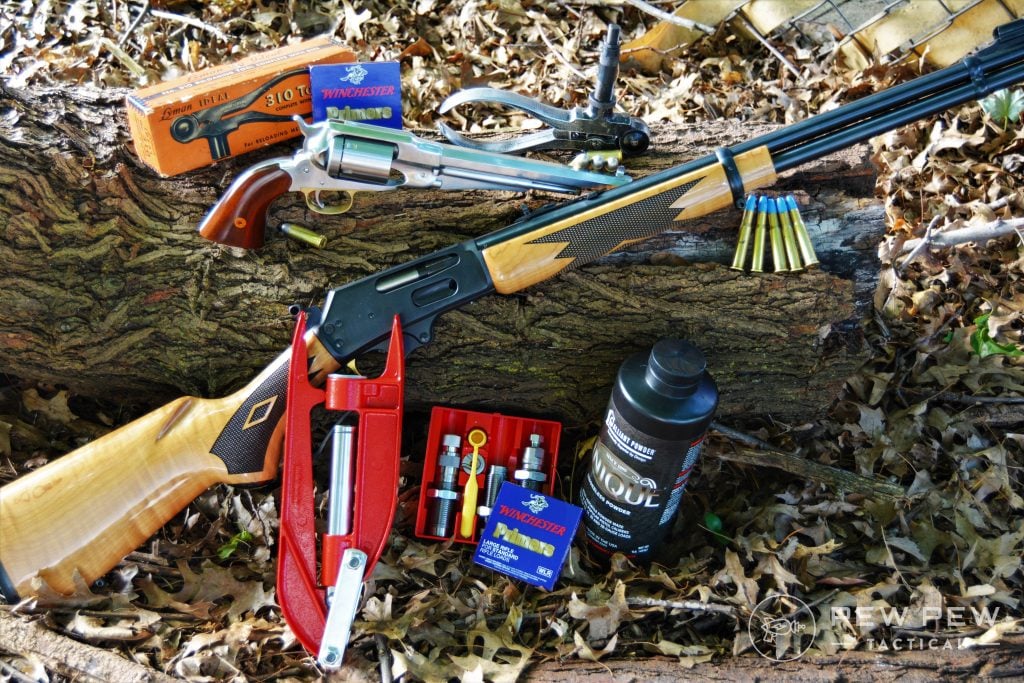
Powder should be stored in a container that will come apart if exposed to fire. SAMMI recommends a box made of one-inch thick wood with a loose lid to prevent any pressure building and possible explosion.
The same holds true for primers. Again, a desiccant pack in powder and primer storage containers will help with moisture control.
Final Thoughts
I am a huge proponent of safe and secure firearms storage. Plus side, safes double as a means of protecting your guns too!
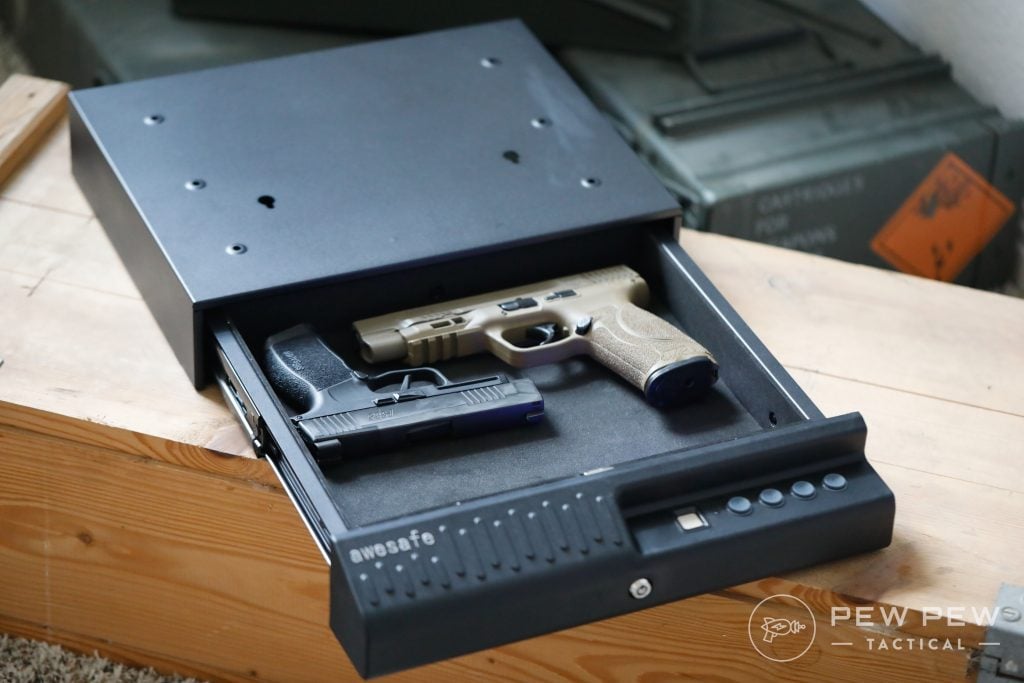
By taking care to keep your guns properly maintained during storage you ensure that those guns will function properly and will last for generations.
Tell us your favorite methods for storing guns and what works the best for you. Looking to store other essentials in case of natural disasters? Check out our Guide to Storing Water for Emergencies.

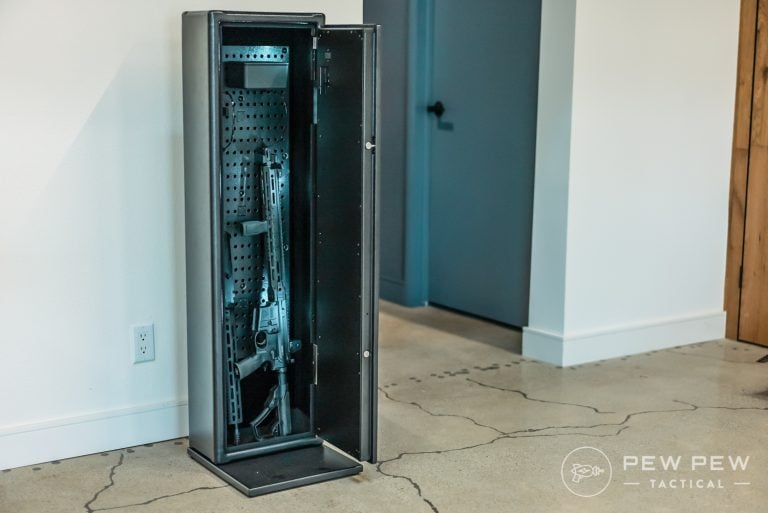




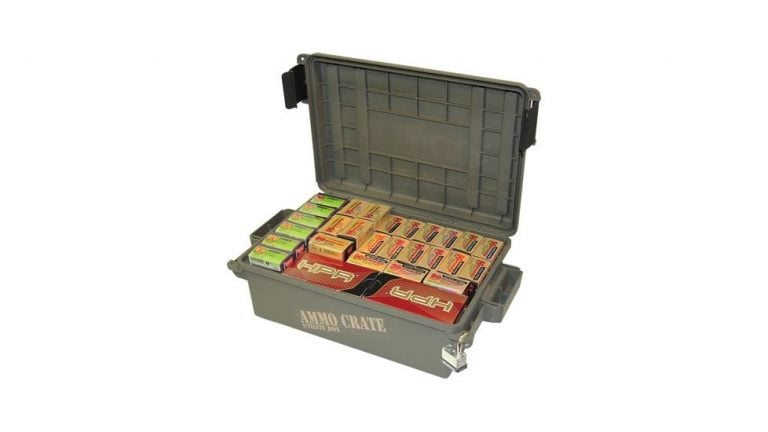




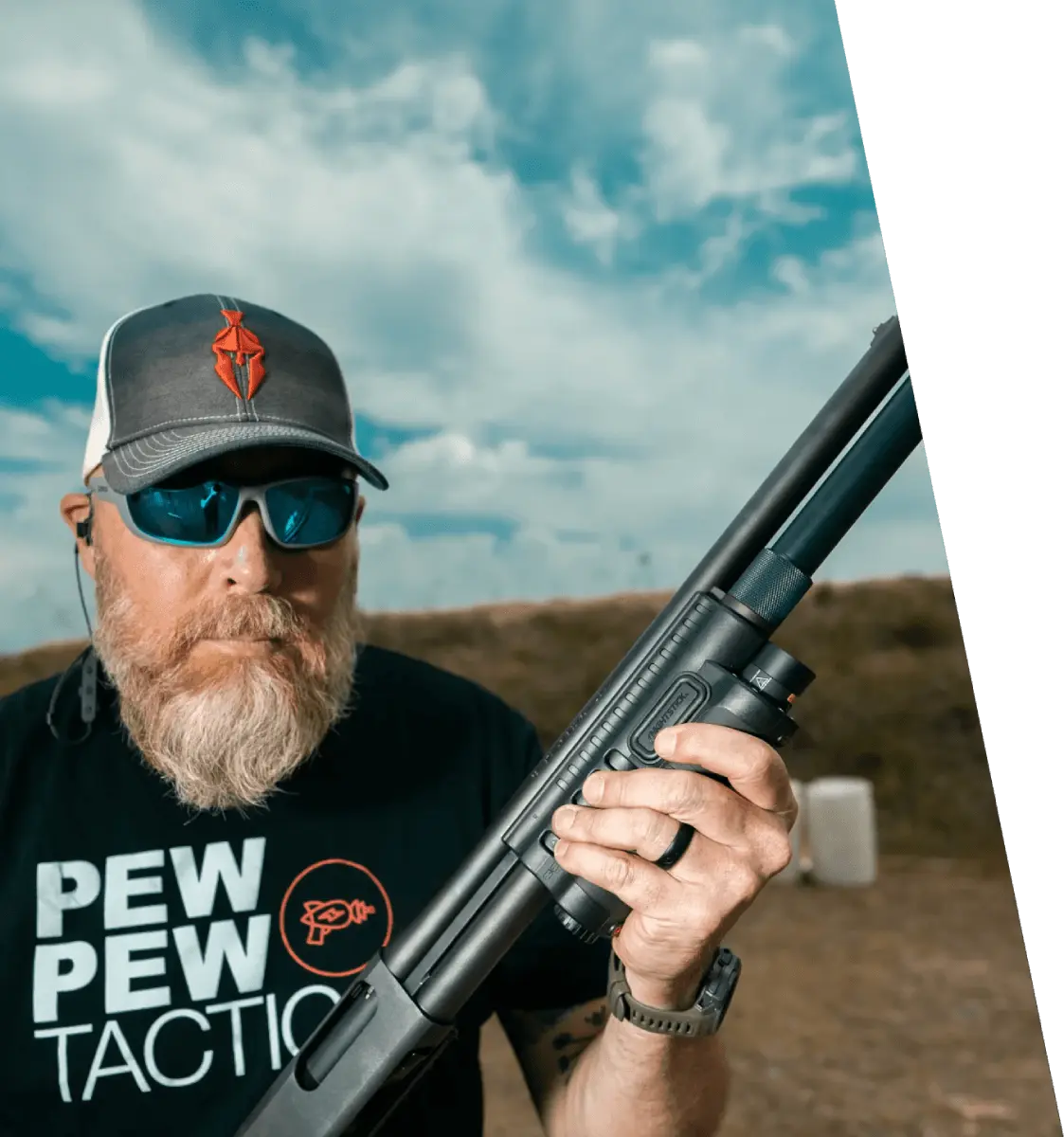


20 Leave a Reply
I got an older Ithaca model 37 Featherlight at an auction; I love it especially since it has the slamfire feature. It wasn't taken care of very well for whatever reason. There is a light rust bloom on the receiver. If I put it in a gun safe with the other firearms, is the rust contagious?
My wife bought me two beautiful gun racks and I have them securely fastened to the wall. I'm worried about moisture when I open the windows on these temperate days. Any recommendations? I clean and oil my guns at least annually. I think I might have to do it more often but should I put a "plug" or something in the barrels?
Put the gun racks in a glass display case. Put dessecants in the case. You can still see the guns and the racks, but they won’t be exposed to the moisture and temp changes.
For collectible or firearms kept in long-term storage, there are protectants available that are heavier viscosity & stand up to moderate handling while in storage. For guns I don't shoot very much or at all, I use Break Free Collector Long Term .... I check, reapply annually, & keep a piece of flannel saturated in a baggie for quick wipe-down after any handling. It is safe to shoot without removing the oil (not at all like cosmoline). In CO, climate is semi-arid, but in 26 years, none of my guns have developed even one freckle.
I just learned something new, and changed the way I store guns in my Liberty Fatboy Jr. I quit using soft cases, and ordered one of those pistol racks. Fortunately, I have never had a problem with rust, and I am in Florida! For gun lube and cleaner, I highly recommend Safari Charlie gun lube. I have used it for years with great results. It also doesn't stink like most lubes. Too many people keep their gun safe in a garage, or other non-climate controlled environment. Really bad idea in Florida. I have mine, and my reloading bench inside in the AC.
Great article.
I'm a lifelong casual shooter, but never owned myself. Family and friends are well-armed, never an issue to borrow a target shooter.
I recently inherited a nice shotgun (18in Mossberg pump), but since I don't plan on buying other firearms near-term, I'm iffy on buying a full-blown safe.
I cleaned and oiled the Mossberg after taking it out recently, so now I'll probably park it for a month or two.
I had planned to use a long camping gear field box (very similar to a 108-quart Plano sportsman) and a multi-point cable lock/padlocks that'll keep it securely closed and tethered in my walk-in closet.
If I put it in a gun sock, could it be stored in a soft case inside the lockbox provided I check it once a month or two and give it a little oil wipe? (And the inside of the box is kept dehumidified?) How often should I check in?
I was going to keep other valuable gear in the box with it, that's why I thought the padded case/bag would be a good idea in addition, but after reading this I'm not so sure. I've never really dealt with these practicalities of firearm storage!
I guess I could just put it in the box in the sock only? (I'm probably overthinking wanting to keep it in the sock/case combo?) I just liked the idea of extra partitioning from incidental wear and rubs
Is the sock alone enough in the storage box?
I thought also that the bag was decent if I decided to start keeping it in reach. If defense was a concern, I have a few prime locations (just out of sight) I could secure the soft case by carabeaner while we're home with zipper "ripcord prepped" (which I wouldn't probably want it in the sock for). Overall, the hanging bag is a modular and tidy option for enabling movable fast-access in several handy spots, yet can still throw it in the box for lockup pretty easily, etc. That's kind of a bitch though if I can't use the bag to ferry between.
My wife and I are ok with the bag holding a loaded firearm strategically placed, but don't like it sitting out exposed on a rack in the same places. (Weird, right?) Any suggestions?
This Mossberg is badass and belonged to a very close friend. It's very treasured, though my biggest concern is rust than theft. We're just a bit limited on good storage options. I do want it accessible if possible, but if there's big potential for damage with this bag idea I guess I'll just keep it locked away in the sockbox idea.
Thoughts?
Thanks a ton
My storage case is under my bed the house humidity is always 50 or below temp is about 70 degrees varies by fiftheen.
Hi Is it okay to store a gun in a padded hard cases with high desnity interlocking foam from plano with anti moisture packets?
Depends on how long and how humid it is where you live. Generally speaking, it's a bad idea to store guns in foam cases since they lock in moisture. However, I have stored guns in foam cases for long periods of time (~2 years) with Silica Packets in the case - but it is only 15-18% humidity year-round where I live in California.
I live in paulding county georgia.I store two stainless guns with five packets for two to four months at a time then shoot them 100 rounds then clean throughly then oil exterior then repeat.The case is a ProMax single scoped rifle case.Is this ok? I cant buy a safe or cabinet.
My storage case is under my bed the house humidity is always 50 or below temp is about 70 degrees varies by fiftheen.
FP10 for melonite/parkerized finishes, barricade and/or ballistol on the rest. Double down with 2x the dessicant cans for you size safe, and toss a hygrometer in there as well. GTG, but monitor cans & safe based on your local weather/humidity.
Alot of great information here in the article and the comments. Thanks everyone!
Don't ever use those plastic cans of moisture absorbing beads that allow the water to build up in the bottom of the container. One cracked in my safe and the drip ruined a 95% 1903 colt and a like new model 19 S&W
I have stored a couple of thousand rounds of ammo by sealing 100 round packs in Foodsaver vacuum bags. I put the ammo in plastic ammo boxes, and put a small desicant pouch in each Foodsaver bag. Keep them inside the house for temperature control....should be good for a long time!
How much desiccant per ammo can? Just one small package per can?
That's what I use, just one small packet.
Put a golden rod in your ammo cabinet as well, as big as will fit
Gun safe companies are still living way in the past and need to catch up. They compete as to the security of their product, but not design. Because of optics and the popularity of the AR, gun safes rarely store even 50% of what they advertise. Optics are much larger now than they were 25+ years ago and each rifle now needs double the space. Triple, if we follow your advice and not allow our guns to touch. Then there is the popularity of different length uppers for the AR platform. Shelving is great, but severely cuts down your storage size. Especially when those uppers have optics on them. Sure there are lots of aftermarket gun storage solutions, but they all make your safe even smaller.
Finally, humidity is a constant battle east of the Mississippi. For larger safes golden rods are still important because they move the air by heating it slightly, but aren’t even close to being enough. Adding silica gel bead products to larger safes are also helpful, but not enough for areas with over 80% humidity. Mini dehumidifiers work amazing, but can bring the humidity down too low for wooden stocks.
Like I said. It’s always a battle.
I live in South Florida and I can tell you what NOT to do. I have a safe for my guns and ammo and I decided to put the safe in my garage. I had no room in any of the closets inside the house. I went out of the country for a six month job and when I returned I was crying to see the condition of three of my guns. One was pitted beyond repair and two others had quite bad tiny rust spots developing on the slide (Glock 17) and the rifle barrel (Weatherby 22) that need service. I didn't realize how hot my garage closet got and the Florida humidity was the killer. I tried a fan and ridX moisture absorber and no good. They are now in he house. Really mad at my self for being stupid. If you live in the south be aware of humidity.